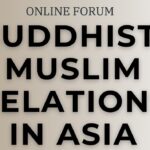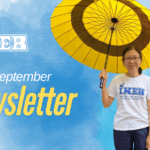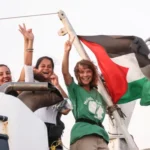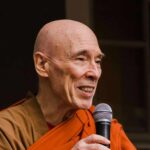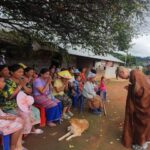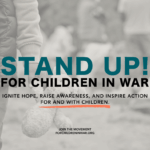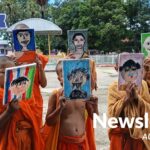 By Melva Yolla
By Melva Yolla
During the last three years, INEB (International Network of Engaged Buddhists) and its network from four different countries have been exchanging their members and volunteers in order to support an organic process of learning, towards an enriching and deeper understanding of the many factors which bring about individual and social change.
As in the previous years, during 2009/2010 INEB facilitated 7 young people from partner organizations: Deer Park Institute (India), PADETC (Laos), Khmer Youth Association (Cambodia), and Dharmajala (Indonesia) for extending youth capacity building through the Youth Exchange for Peace and Social Innovation.
Nicky from Dharmajala, Indonesia, and Jiraphat Buain from INEB were posted with Deer Park Institute (DPI) in India. As a result of the exchange, Jiraphat built up the first Deer Park Blog, started a Local Wisdom Project, and produced a short documentary on a workshop of Medicinal Herbs. She also translated a Community Study Tool Book from Thai into English as a youth community studying tool. She worked intensively with the local Indian community (local volunteer youth and school children) which she hadn?t done before, helping her to realize that she can be a great facilitator for youth capacity building.
Meanwhile, Nicky was involved with an Ecology Project, which he also had never done before. He worked with the local Tibetan community, who came from different backgrounds: monks, students, and youth. He also finished the first Deer Park Ecology Guide Book, a guide to conduct a three-day workshop. This experience made him think of being a teacher, an idea that never came up before the exchange.
Sent through INEB, Myo Aung from Myanmar gained a lot of experience from the Khmer Youth Association. He learnt about community mobilization and shifted his focus from organizational development to community development, which is very helpful for him to build up his community in his hometown. He also learned how to do effective fund raising. Coming back to his home town in Myanmar, together with the youth there, he is establishing a library as a youth learning centre.
Dharmajala was a host for Kimleng Meas, a young lady from Khmer Youth Association (KYA), Cambodia. She is a trainer and shows her interest in Buddhism. During her staying with Dharmajala, she learnt about mindful living and how to build peace, not only for the outer world, but the most important is cultivating the peace within. She also contributed in completing Dharmajala?s Sunday School Program. By her presence in Dharmajala, she helped Dharmajala?s members to understand about KYA and its work.
PADETC in Laos received two young ladies, one from Cambodia and one from Indonesia. A pictorial training booklet about earth worm raising, compost and bio-extract making was produced by Channa from KYA. This training booklet is a result of her learning process on those topics. She also conducted a training on the same topic for youth and children in schools.
PADETC?s first Karacomix, ?Action Learning for Change: Discovery Farming in a Village?, was completed and used as a training module on action research by the help of Melva from Dharmajala. This is a result of her learning and participation in conducting Action Learning for Change (also called action research). At the same time, she learnt how to empower the youth to make change in society. Being exposed to alternative education models and approaches, she also strengthened her capacity, knowledge, and skill as a teacher.
Santosh Priya, a charming young man from Deer Park Institute, was posted with INEB. His confidence and communication skill improved a lot during his 10 month exchange period. He learnt about eco-village design education, organic farming, and local wisdom. Completing his exchange program, he wrote a book about engaged Buddhist leaders in his mother language, Hindi. He also decided to continue the local wisdom project started by Jiraphat in Deer Park.
It can be said that the year 2009/2010 was a satisfying year for INEB and all other partners. All participants have shown concrete results and contributions, not only with their host organization, but also their home organization, communities, and countries.
Welcoming the new participants for the year 2010/2011, with the initiative from the last batch participants, INEB held a short course for these seven young people (2 from India, 2 from Indonesia, 1 from Thailand, 1 from Myanmar, 1 from Cambodia) to strengthen their knowledge about engaged Buddhism so they will be able to bring Buddhist views and practices to their daily life and work. It was a five-day course which the first two-days were an exposure trip and the rest was workshop about Engaged Buddhism.
Moo Ban Dek (Children Village School) in Kanchanaburi Province was chosen for them to learn about alternative education. In this beautiful place, their view about education changed. They saw and experienced directly how different the children there. This amazing school gave them a deep impression about how our education system could be.
Wat Songdhammakalyani, where Ven. Bhikkhuni Dhammananda stays was chosen as the second place for them to visit. Ven. Dhammananda is the first Theravada bhikkhuni in Thailand. From her the participants learnt about women?s position in Buddhism and in their country. Ven. Dhammananda also shared how her temple tries to contribute to society. One action they are doing is about waste management.
Apart from Ven. Dhammananda, these seven young future leaders got a chance to meet with Ajahn Sulak Sivaraksa. He probably is the first engaged Buddhist activist that the participants met and the meeting left a deep impression for them and gave an understanding about Engaged Buddhism.
The three-day workshop was facilitated by Pi Anne, Pi Ja, and Pi Na. Pi Anne gave them more detailed understanding about engaged Buddhism, structural violence, and how an engaged Buddhist should be. Meditation techniques focusing on breath was shared by Pi Na. He also brought participants to be engaged with nature.
Pi Ja shared her knowledge about coaching skill. Coaching skill workshop usually takes three days, but in this short course, Pi Ja tried her best to wrap up the three-day course into one day course. And the result was good. All participants got the key points of coaching skills.
From the short course about Engaged Buddhism, they got the big picture about what engaged Buddhism is. They understand the first step they must do is to understand their own self first. Next, understanding social structure is also important. And the most important is to practice meditation in order to balance the mundane and non-mundane.
?


